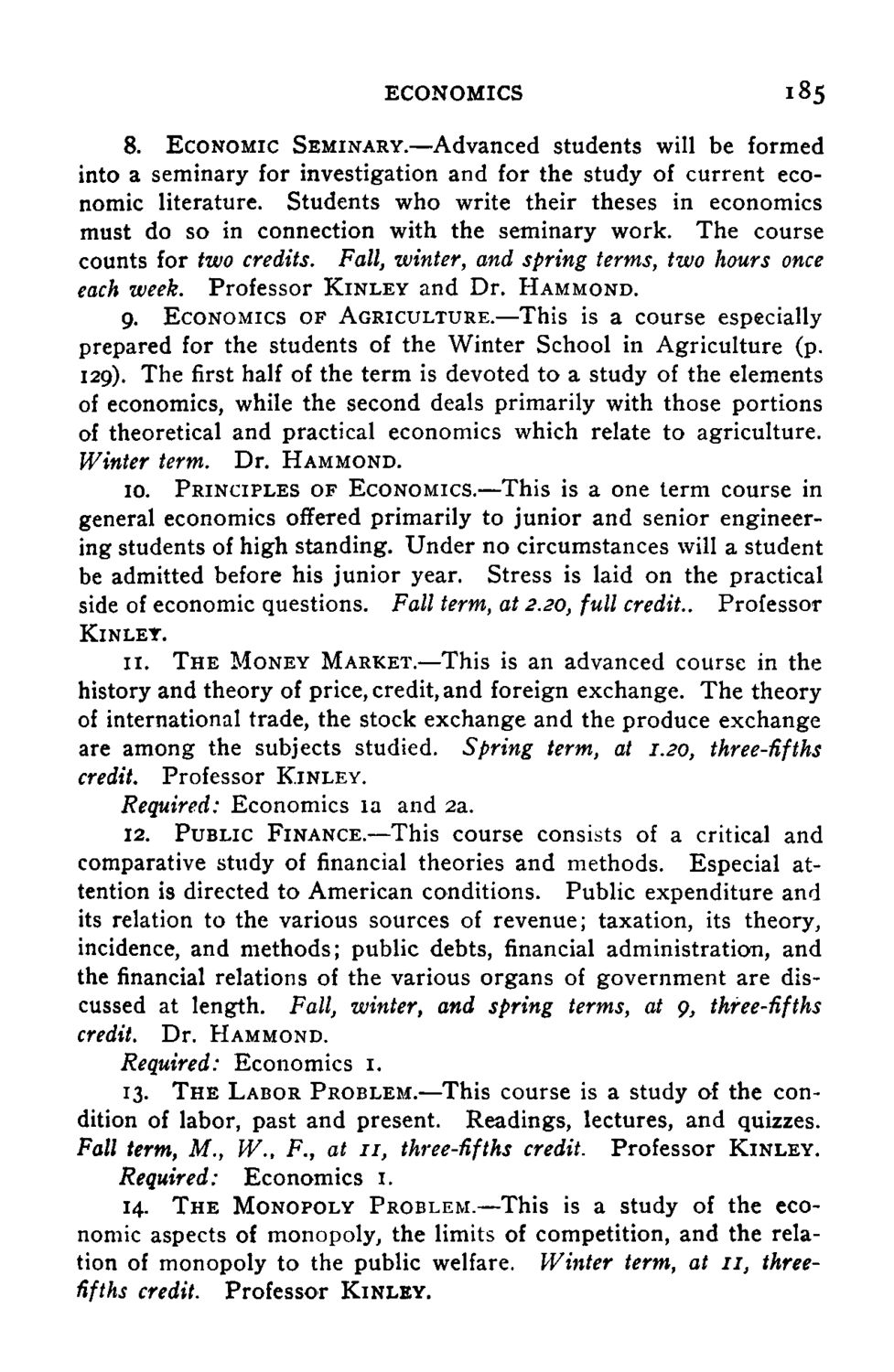Caption: Course Catalog - 1897-1898
This is a reduced-resolution page image for fast online browsing.

EXTRACTED TEXT FROM PAGE:
ECONOMICS 185 8. ECONOMIC SEMINARY.—Advanced students will be formed into a seminary for investigation and for the study of current economic literature. Students who write their theses in economics must do so in connection with the seminary work. The course counts for two credits. Fall, winter, and spring terms, two hours once each week. 9. Professor KINLEY and Dr. HAMMOND. ECONOMICS OF AGRICULTURE.—This is a course especially prepared for the students of the Winter School in Agriculture (p. 129). The first half of the term is devoted to a study of the elements of economics, while the second deals primarily with those portions of theoretical and practical economics which relate to agriculture. Winter term. Dr. HAMMOND. 10. PRINCIPLES OF ECONOMICS.—This is a one term course in general economics offered primarily to junior and senior engineering students of high standing. Under no circumstances will a student be admitted before his junior year. Stress is laid on the practical side of economic questions. Fall term, at 2.20, full credit.. Professor KIN LET. 11. T H E MONEY MARKET.—This is an advanced course in the history and theory of price, credit, and foreign exchange. The theory of international trade, the stock exchange and the produce exchange are among the subjects studied. Spring term, at 1.20, three-fifths credit. Professor KINLEY. Required: Economics la and 2a. 12. PUBLIC FINANCE.—This course consists of a critical and comparative study of financial theories and methods. Especial attention is directed to American conditions. Public expenditure and its relation to the various sources of revenue; taxation, its theory, incidence, and methods; public debts, financial administration, and the financial relations of the various organs of government are discussed at length. Fall, winter, and spring terms, at <), three-fifths credit. Dr. HAMMOND. Required: Economics 1. 13. T H E LABOR PROBLEM.—This course is a study of the con- dition of labor, past and present. Readings, lectures, and quizzes. Fall term, M., W., F., at 11, three-fifths credit. Professor KINLEY. Required: Economics 1. 14. T H E MONOPOLY PROBLEM.—This is a study of the eco- nomic aspects of monopoly, the limits of competition, and the relation of monopoly to the public welfare. Winter term, at 11, threefifths credit. Professor KINLEY.
|